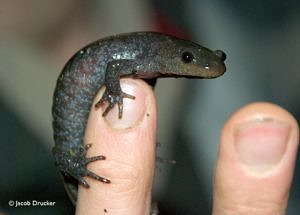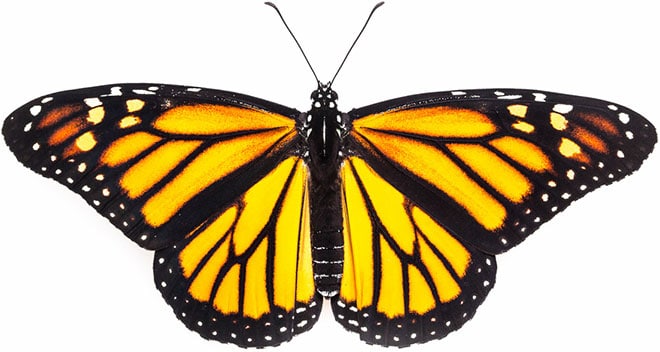Find a Crossing Program Near You
Want to help with salamander crossings, but don’t live in southwest New Hampshire? Don’t despair! Just follow the links below to a Salamander Crossing Brigade near you.
While you’re at it, check out Mark Urban’s Amphibian Tracker map, which maps local amphibian migration observations by date. Watch the migration trend north each spring!
Connecticut
Conservation Partners of the Pomperaug coordinates amphibian crossing efforts in the Pomperaug River watershed, including Bethlehem, Southbury, and Woodbury, CT.
Maine
Lakes Environmental Association coordinates amphibian crossings in Bridgton, ME.
The Chebeague & Cumberland Land Trust coordinates an amphibian crossing program in Cumberland, ME.
Maine Big Night coordinates crossings statewide. For more information, join the Maine Big Night Facebook group, check out their website, or send them an email.
Massachusetts
Linking Landscapes. This isn’t an amphibian crossing program, but it is a great way to share your knowledge of migratory amphibian hotspots in Massachusetts with the Massachusetts Department of Transportation, the Massachusetts Natural Heritage & Endangered Species program, and the Vernal Pool Association, as part of a long-term effort to minimize the impact of roads on amphibians.
The Vernal Pool Association. This is also not an amphibian crossing program, but the Vernal Pool Association’s listserv is a great way to watch the migration unfold in the Northeast. The listserv is also a good resource for people looking to find crossing sites and Big Night companions in southern New England. There are a lot of enthusiastic herpers there who are happy to share what they know!
The Hitchock Center for the Environment doesn’t coordinate crossing brigades, but they do sponsor an annual volunteer maintenance day for the famous Henry Street salamander tunnels in Amherst, MA, North America’s first underpass system geared specifically toward helping migrating amphibians safely cross (under) the road!
The Berkshire Environmental Action Team (BEAT) coordinates crossing brigade efforts in the Berkshires, including sites in Lenox, Monterey, and West Stockbridge, MA. They are also happy to help coordinate other crossings if people reach out to them about additional sites in Berkshire County. To learn more, email BEAT.
The Conservation Office for the City of Gardner began coordinating amphibian crossing efforts in Gardner, MA in 2023. Email Conservation Agent Sophie Dorow for more information.
The Littleton Conservation Commission coordinates crossing brigade efforts in Littleton, Acton, and Boxboro, MA. Email Amy Green for more information or to sign up.
The Cape Ann Vernal Pond Team also doesn’t coordinate crossing brigades, but they do lead nighttime field trips to vernal ponds on the North Shore to see amphibian breeding activity. Email them for more information or to sign up.
The Pepperell Conservation Commission coordinates amphibian crossing efforts in Pepperell, MA.
Freddie Gillespie coordinates informal amphibian crossing efforts in Southborough, MA. To sign up, contact Freddie by email.
New Hampshire
Tin Mountain Conservation Center coordinates a crossing on Bald Hill Road in Albany, NH. For more information or to sign up, contact Allison Byrd by email.
Angie Krysiak coordinates informal frog crossing efforts at Patten Hill Road, near Abe Emerson Marsh in Candia, NH. For more information, contact Angie by email.
The Lebanon Conservation Commission coordinates crossing brigade efforts at multiple sites in Lebanon, NH.
The Green Mountain Conservation Group and Chocorua Lake Conservancy coordinate efforts in the Chocorua Lake Basin, including a site in Tamworth, NH.
New Jersey
The Conserve Wildlife Foundation of New Jersey has been coordinating crossings in northern NJ since 2002.
The Sourland Conservancy coordinates amphibian crossing efforts in East Amwell and at other sites in central NJ.
The Friends of East Brunswick Environmental Commission webpage is a great resource for the Beekman Road crossing site in East Brunswick, NJ. East Brunswick takes amphibian conservation very seriously, instituting temporary road closures each year to protect amphibians who migrate across Beekman Road between Church Lane and Irelands Brook.
New York
The New York Department of Environmental Conservation’s Hudson River Estuary Program is always looking to grow their list of known amphibian crossings in the Hudson River Valley.
The Town of Berne Conservation Board coordinates a grassroots Amphibian Migration Project in Berne, NY.
The Columbia Land Conservancy has coordinated Big Night efforts in Columbia County in the past — and aspires to do so again in the future. Their crossing program is currently on hiatus, but they do know the locations of local crossing sites, and are happy to share that information with people who want to go out on their own. For more information, email Heidi Bock.
The Averill Park Amphibian Project coordinates crossing efforts in Poestenkill and Sand Lake, NY. For more information or to sign up, join their Facebook group or email Adam Haines.
Friends of Thacher State Park coordinates volunteer salamander crossing efforts at Thacher Park Road in Voorheesville, NY.
Pennsylvania
Delaware Water Gap National Recreation Area doesn’t coordinate crossing brigades, but they do close River Road in Middle Smithfield Township, PA on migration nights to protect spring-breeding amphibians and to allow the public to safely enjoy the spectacle. Follow the park on Facebook for updates.
The Schuylkill Center enlists volunteers to help with erecting barricades, diverting traffic, and moving toads off the road as part of their impressive “Toad Detour” program in the Roxborough neighborhood of Philadelphia, PA.
Vermont
Vermont Reptile & Amphibian Atlas. This isn’t an amphibian crossing program per se, but it is a great way to share your knowledge of migratory amphibian hotspots in Vermont with the Vermont Department of Fish & Wildlife and VTrans, as part of a long-term effort to minimize the impact of roads on amphibians. They also keep folks apprised of amphibian migrations on their Facebook page and via a helpful listserv.
Bonnyvale Environmental Education Center in West Brattleboro coordinates Salamander Crossing Brigades throughout southeast VT. We modeled our program after BEEC’s salamanderings many moons ago, and they’re still going strong!
The Hartford Salamander Team coordinates amphibian crossing efforts in Hartford, Quechee, West Hartford, White River Junction, and Wilder, VT.
North Branch Nature Center in Montpelier coordinates crossings throughout central, western, and northeast VT — they’ve got sites in Washington, Orleans, Addison, Franklin, and Chittendon counties.
Virginia
The Loudoun Wildlife Conservancy coordinates amphibian migration mapping and crossing brigades in Loudoun County, VA.


